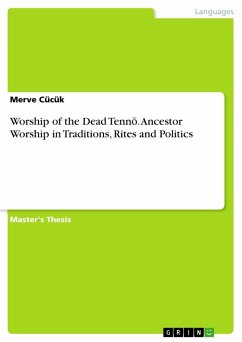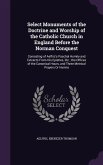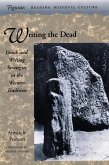Master's Thesis from the year 2022 in the subject Orientalism / Sinology - Japanology, grade: 1,3, University of Tubingen (Asien-Orient-Wissenschaften, Japanologie), language: English, abstract: This master thesis aims to answer the following questions: What role does the Je-System play in the veneration of ancestor in Japan? How did the syncretism of Shintö and Buddhism beliefs regarding ancestor worship come to be? What are the differences in imperial ancestor rites between 1901 and now? Did imperial ancestor veneration increase after the Meiji Restoration and, if so, to what extent? 1s Japanese ancestor worship and its rites 'tradition' or rather 'invented tradition'? Ancestor worship is a unique belief system that can affect various aspects of life. Whether one believes in the afterlife or reincarnation, in fate or karma or even in creating one's own destiny, the belief in past family members or respected individuals of past times can be bent and mended to one's own needs and circumstances. Maybe it is the memory of their lives and the love they granted their descendants, maybe it is the respect and admiration for the lives and achievements they left behind or maybe less positive reasonings lead people to venerate their dead, for example wanting to appease malicious souls that might influence their descendant's lives negatively. Some might say these differences are dependent on the region or religion. The author would argue that it is dependent on families or even individuals. But surely, general tendencies can be identified in different regions and religions of the world. While ancestor worship might have some religious aspects at its' core, one cannot argue, that it is not also a socially and culturally influenced belief system. There might be people that still visit their parents' graves, even though they are not religious or don't believe in a higher power. Likewise, there might be some that identify as very religious, and still do not venerate their ancestors.
Hinweis: Dieser Artikel kann nur an eine deutsche Lieferadresse ausgeliefert werden.
Hinweis: Dieser Artikel kann nur an eine deutsche Lieferadresse ausgeliefert werden.








